Ministry proposes tariff cuts to bring down petrol prices
In addition, the ministry said it will consider lowering the current tax on ethanol from 15 per cent to 10 per cent for some ethanol products.
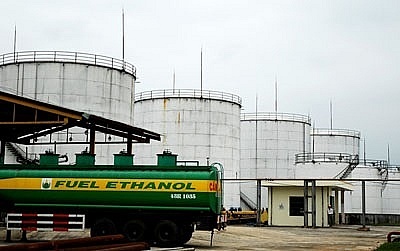 |
| A truck loaded up with ethanol at an ethanol storage site in central Viet Nam. - VGP Photo |
There were six ethanol plants in Vietnam with a total output capacity of 400,000 cubic metres while demand for ethanol, mostly used for the making of bio-gasoline E5 RON92, 5 per cent of ethanol mixed with gasoline, which in the domestic market was estimated at 200,000 cubic metres a year.
In addition, higher input costs and an unstable supply of raw materials were Vietnamese ethanol makers' major weaknesses. It has resulted in some of them being forced to close down on top of their inability to compete with cheaper imported ethanol.
The US Grains Council has also recently filed a demand for Viet Nam to bring down tariffs on US ethanol from 15 per cent to 5-10 per cent.
According to the ministry, Vietnam encourages the use of ethanol in making biofuel and the use of biofuel as they are considered to be more environmentally friendly compared to fossil fuels. In light of rising global prices, the country also aimed at greater imports of ethanol to help ease supply shortfalls.
The Southeast Asian country imported nearly US$49 million worth of ethanol last year with the US being its largest supplier with 62 per cent of the volume. Under current regulations, ethanol (HS 2207.20.11, 2207.20.19) was set at a 15 per cent MFN tariff.
The ministry said lowering MFN tariffs and tariffs on imported ethanol were effective steps taken to bring down petrol prices in Viet Nam and to help reduce the economy's input cost. In addition, the move has been said to provide a boost to exports, especially to the US.
Meanwhile, State budget collection might experience some minor decreases, according to the ministry.
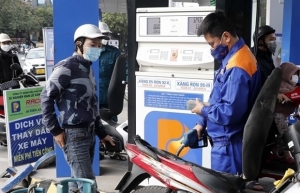 | Taxes and fees to be cut to curb petrol prices Vietnam will need to cut taxes and fees, in addition to using the petroleum price stabilisation fund if petrol prices keep rising, said a leader from the Ministry of Industry and Trade (MoIT). |
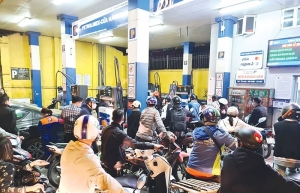 | Petrol prices pressure inflation Inflationary pressure in Vietnam is increasing as local petrol production falls below expectations which, in turn, is affecting the consumer price index and putting pressure on macroeconomic stability. |
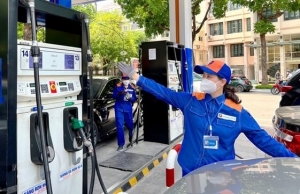 | Tax cuts on agenda to assist recovery New fiscal solutions are set to be applied to reduce risks of high inflation this year which are looming due to massive pressure in growing prices of a series of indispensable items and services, affecting consumption recovery and economic growth. |
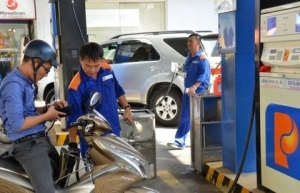 | Petrol retailers demand major changes Retail petroleum businesses have asked to stop contributing to the petrol price stabilisation fund, increasing the commission to reduce losses and permanently withdrawing the licence of unprofitable retailers. |
What the stars mean:
★ Poor ★ ★ Promising ★★★ Good ★★★★ Very good ★★★★★ Exceptional
Related Contents
Latest News
More News
- Masan Consumer names new deputy CEO to drive foods and beverages growth (February 23, 2026 | 20:52)
- Myriad risks ahead, but ones Vietnam can confront (February 20, 2026 | 15:02)
- Vietnam making the leap into AI and semiconductors (February 20, 2026 | 09:37)
- Funding must be activated for semiconductor success (February 20, 2026 | 09:20)
- Resilience as new benchmark for smarter infrastructure (February 19, 2026 | 20:35)
- A golden time to shine within ASEAN (February 19, 2026 | 20:22)
- Vietnam’s pivotal year for advancing sustainability (February 19, 2026 | 08:44)
- Strengthening the core role of industry and trade (February 19, 2026 | 08:35)
- Future orientations for healthcare improvements (February 19, 2026 | 08:29)
- Infrastructure orientations suitable for a new chapter (February 19, 2026 | 08:15)

 Tag:
Tag:


















 Mobile Version
Mobile Version